European Union
Dutch ambassador to U.S. reaffirms country’s commitment to LGBTQ, intersex rights
Amsterdam Rainbow Dress displayed at Lincoln Memorial on Monday
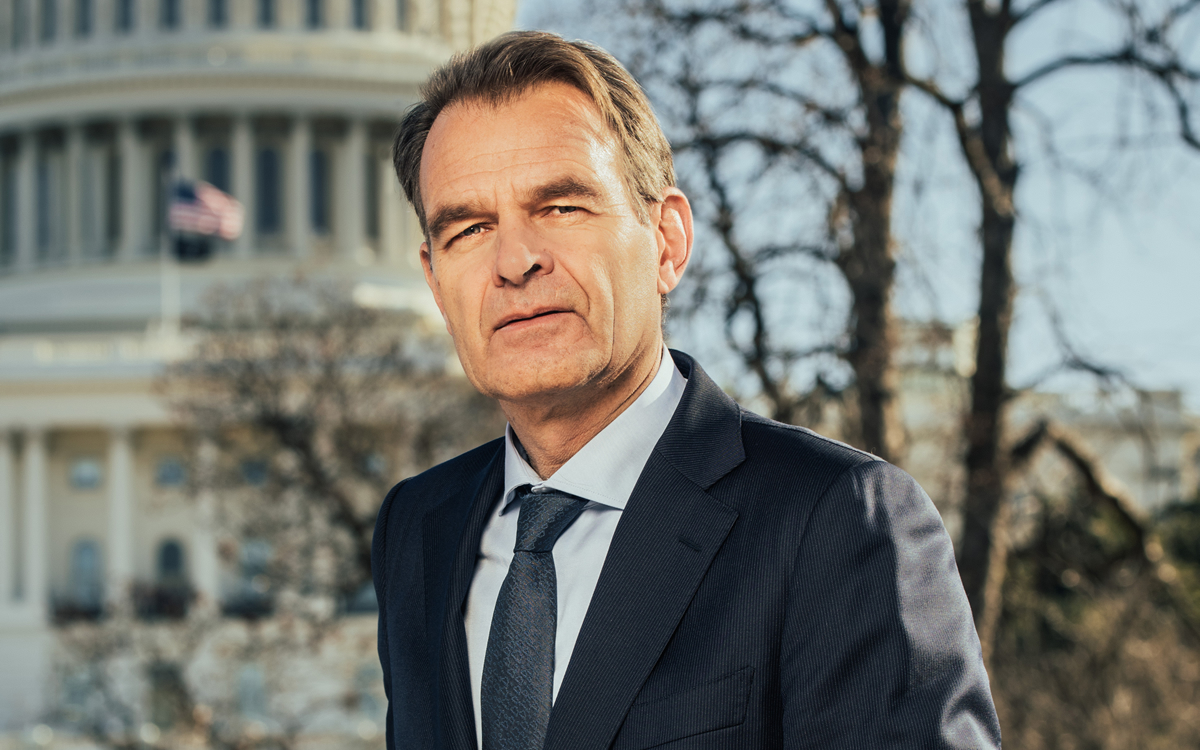
Dutch Ambassador to the U.S. André Haspels on Tuesday said the Netherlands remains committed to LGBTQ and intersex rights in his country and around the world.
Haspels spoke with the Washington Blade a day after the embassy, the Capital Pride Alliance and the Amsterdam Rainbow Dress Foundation showcased the Amsterdam Rainbow Dress at the Lincoln Memorial.
The dress, which has a 52′ circumference, contains the flags of the 68 countries in which consensual same-sex consensual relations remain criminalized.
The Netherlands in 2001 became the first country in the world to extend marriage rights to same-sex couples. The dress’ bodice, which is made with Amsterdam’s city flag, commemorates this watershed moment in the global LGBTQ and intersex rights movement.
A press release from the Dutch Embassy notes the dress was made in 2016 and was first displayed at Rotterdam Pride.
Models in the U.S., Spain, South Africa, Greece, Australia and other countries have worn it. Makia Green, an LGBTQ and intersex rights activist, and Vagenesis, a drag performer and advocate, wore the dress while it was in D.C.
“We invited the Rainbow Dress to come over to the United States, to Washington, to show our support for LGBTIQ+ rights worldwide,” said Haspels. “What better location is there in front of the Lincoln Memorial, because LGBTIQ+ rights are part of a broader aspect of human rights.”
“The main issue is to focus on the importance of LGBTQI rights, and also understanding and promoting the fact that it is important to ensure freedom for everyone to decide whom they want to love and to identify and whom they want to identify with as they wish,” he added. “That’s our goal for the Amsterdam Rainbow Dress.”
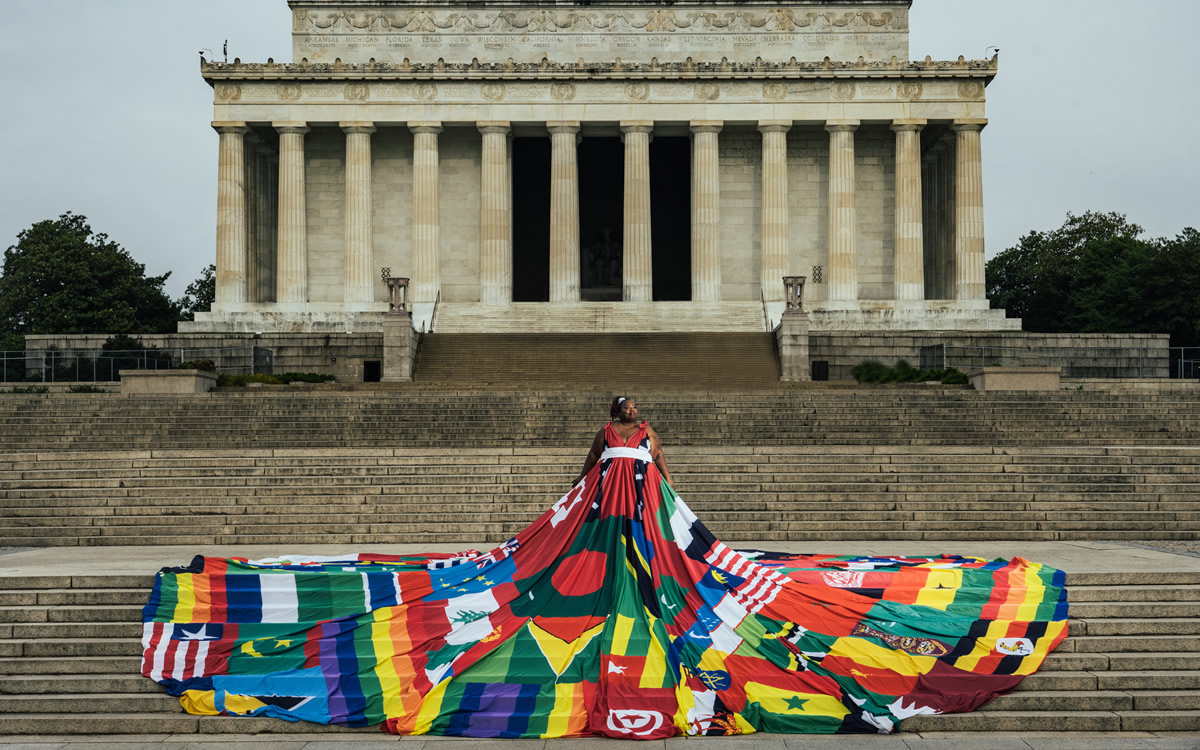
Haspels spoke with the Blade a day before the International Day Against Homophobia, Transphobia and Biphobia, which commemorates the World Health Organization’s declassification of homosexuality as a mental disorder on May 17, 1990.
Kyiv Pride on Wednesday noted its staffers visited the Dutch Embassy in the Ukrainian capital, “where the flag of the LGBTIQ+ community was solemnly raised in honor of the Day Against Homophobia, Transphobia and Biphobia.”
“This was an extremely important event for our community,” tweeted Kyiv Pride.
Today, KyivPride had the honor of visiting the Embassy of the Netherlands, where the flag of the LGBTIQ+ community was solemnly raised in honor of the Day Against Homophobia, Transphobia and Biphobia. This was an extremely important event for our community. @NLinUkraine pic.twitter.com/c48JtIHsTR
— KyivPride (@KyivPride) May 17, 2023
Ukrainian President Volodymyr Zelenskyy on May 4 met with Dutch Prime Minister Mark Rutte and other members of his government while he was in the country. Zelenskyy also visited the International Criminal Court in The Hague.
The ICC in March issued arrest warrants for Russian President Vladimir Putin and Russian Children’s Rights Commissioner Maria Lvova-Belova. The Netherlands-based court accuses them of abducting children from Ukraine.
“It is important to continue to support Ukraine in many different ways,” Haspels told the Blade. “We continue to support them with military aid, with rehabilitation aid. We also receive refugees from Ukraine.”
Haspels said his government continues to gather “information about war crimes to make sure those who are responsible for this terrible war will be held accountable.” He also said the Netherlands continues to “welcome all Ukrainians, irrespective of their backgrounds, and who they are.”
“They are most welcome,” said Haspels.
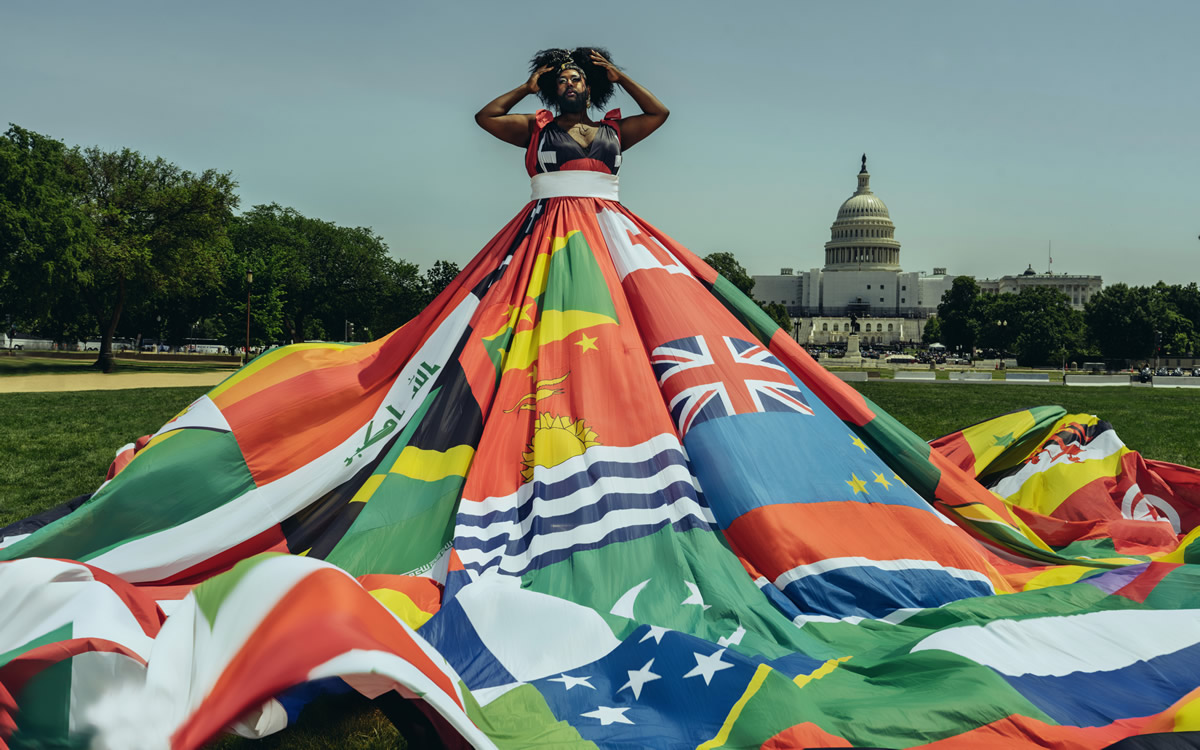
Haspels noted WorldPride 2026 will take place in Amsterdam. (The biennial event will take place in D.C. in 2025.)
The Netherlands is a member of the Global Equality Fund, a U.S. initiative that seeks to promote LGBTQ and intersex rights around the world. Haspels pointed out to the Blade that his country also works with the European Union on these issues, and has invited activists from Uganda and other countries to the Netherlands.
Ugandan lawmakers earlier this month once again approved their country’s Anti-Homosexuality Act, which contains a death penalty provision for anyone found guilty of “aggravated homosexuality.” The Netherlands is among the countries that have urged Ugandan President Yoweri Museveni to veto the bill.
“We have to be honest, it’s not always an easy environment,” Haspels told the Blade in response to a question about the Anti-Homosexuality Act and supporting LGBTQ and intersex activists and rights around the world. “Sometimes you have to be cautious also not to bring people, in this case, Ugandan people, into danger.”
“It’s not easy, but we have no alternative than to continue focusing on these rights and strive for improvement,” he added.
‘We also can improve’
The Netherlands received a 56 percent score in the annual ILGA-Europe Rainbow Map and Index report that the European LGBTQ and intersex rights group last week. ILGA-Europe made three specific recommendations to the Dutch government.
• Prohibiting medical interventions on intersex minors when the intervention has no medical necessity and can be avoided or postponed until the person can provide informed consent.
• Reforming the legal framework for legal gender recognition to be fair, transparent, based on a process of self-determination and free from abusive requirements (such as GID/medical diagnosis or age restriction.)
• Banning so-called “conversion practices” on the grounds of sexual orientation and gender identity.
Haspels acknowledged his government can do more to extend rights to LGBTQ and intersex people.
“There’s the law, and there’s the rules and regulations, which are very important,” he said. “We also can improve.”
Haspels noted there is “still a lot of legislation in preparation in order to improve the situation.” Haspels also specifically pointed to violence against LGBTQ and intersex rights activists where the “police did not act responsibly.”
“We’re struggling with that,” he said.
“There’s scope for improvement for my country as well, but again, I think the most important thing is to bring it out in the open, to start a discussion,” added Haspels. “That’s also the idea of the Rainbow Dress, and we’re also working together with United States. Also there in the United States, things can still be improved … We follow closely what’s going on in other countries, but the most important thing is to have a dialogue.”
European Union
European Parliament resolution backs ‘full recognition of trans women as women’
Non-binding document outlines UN Commission on the Status of Women priorities

The European Parliament on Feb. 12 adopted a transgender-inclusive resolution ahead of next month’s U.N. Commission on the Status of Women meeting.
The resolution, which details the European Union’s priorities ahead of the meeting, specifically calls for “the full recognition of trans women as women.”
“Their inclusion is essential for the effectiveness of any gender-equality and anti-violence policies; call for recognition of and equal access for trans women to protection and support services,” reads the resolution that Erin in the Morning details.
The resolution, which is non-binding, passed by a 340-141 vote margin. Sixty-eight MPs abstained.
The commission will meet in New York from March 10-21.
A sweeping executive order that President Donald Trump signed shortly after he took office for a second time on Jan. 20, 2025, said the federal government’s “official policy” is “there are only two genders, male and female.” The Trump-Vance administration has withdrawn the U.S. from the U.N. LGBTI Core Group, a group of U.N. member states that have pledged to support LGBTQ and intersex rights, and dozens of other U.N. entities.
European Union
Top EU court: Poland must recognize same-sex marriage from other European countries
Activists celebrate landmark decision
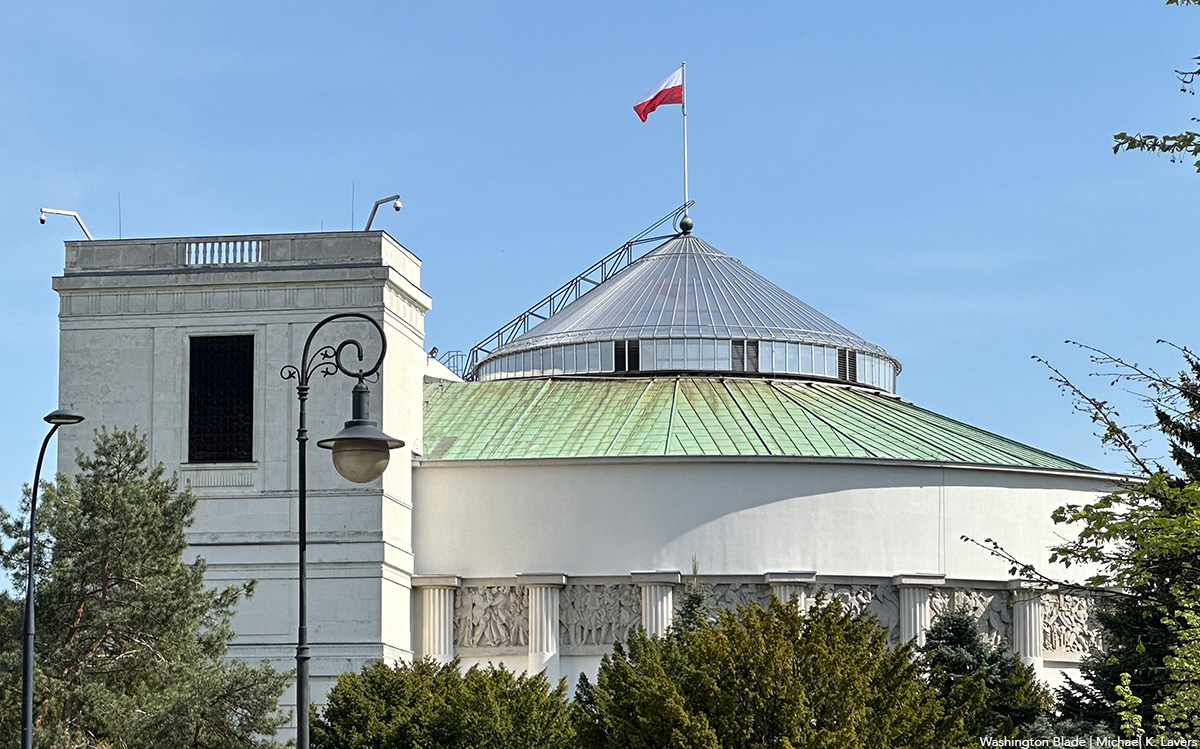
The European Union’s top court on Tuesday ruled member states must recognize same-sex marriages legally performed in other member states.
The EU Court of Justice in Luxembourg ruled in favor of a couple who challenged Poland’s refusal to recognize their German marriage.
ILGA-Europe notes Polish authorities refused “to transcribe into the civil register a certificate of same-sex marriage concluded” in Germany “between a Polish citizen and a Polish-German citizen … on the grounds that Polish law does not allow same-sex marriage.”
The couple who lives in Poland brought their case to Polish courts. The Polish Supreme Administrative Court referred it to the EU Court of Justice.
“Today’s ruling of the Court of Justice of the EU is of key importance not only for the couple involved in the case, but also for the entire LGBT+ community in Poland,” said the Campaign Against Homophobia, a Polish LGBTQ and intersex rights group, in response to the decision. “It clearly states that refusing to transcribe a marriage concluded abroad is incompatible with EU law. Therefore, regardless of the absence of registered partnerships and marriage equality, Poland must ensure the possibility of effective transcription.”
“With this judgment, the CJEU clearly states that the recognition of marriage status is key to enjoying EU citizens’ fundamental right to freedom of movement across the EU,” added ILGA-Europe Advocacy Director Katrin Hugendubel. “The EC now needs to ensure that this judgment is implemented quickly by the Polish state and across the EU.”
Sixteen EU countries — Ireland, Portugal, Spain, France, Luxembourg, Belgium, the Netherlands, Germany, Denmark, Austria, Slovenia, Malta, Greece, Sweden, Finland, and Estonia — have extended full marriage rights to same-sex couples. Poland, Romania, Bulgaria, and Slovakia are the EU countries with no legal recognition of same-sex couples.
European Union
Former Irish prime minister: Europe is leader in global LGBTQ rights movement
Leo Varadkar in 2017 became Ireland’s first gay head of government.
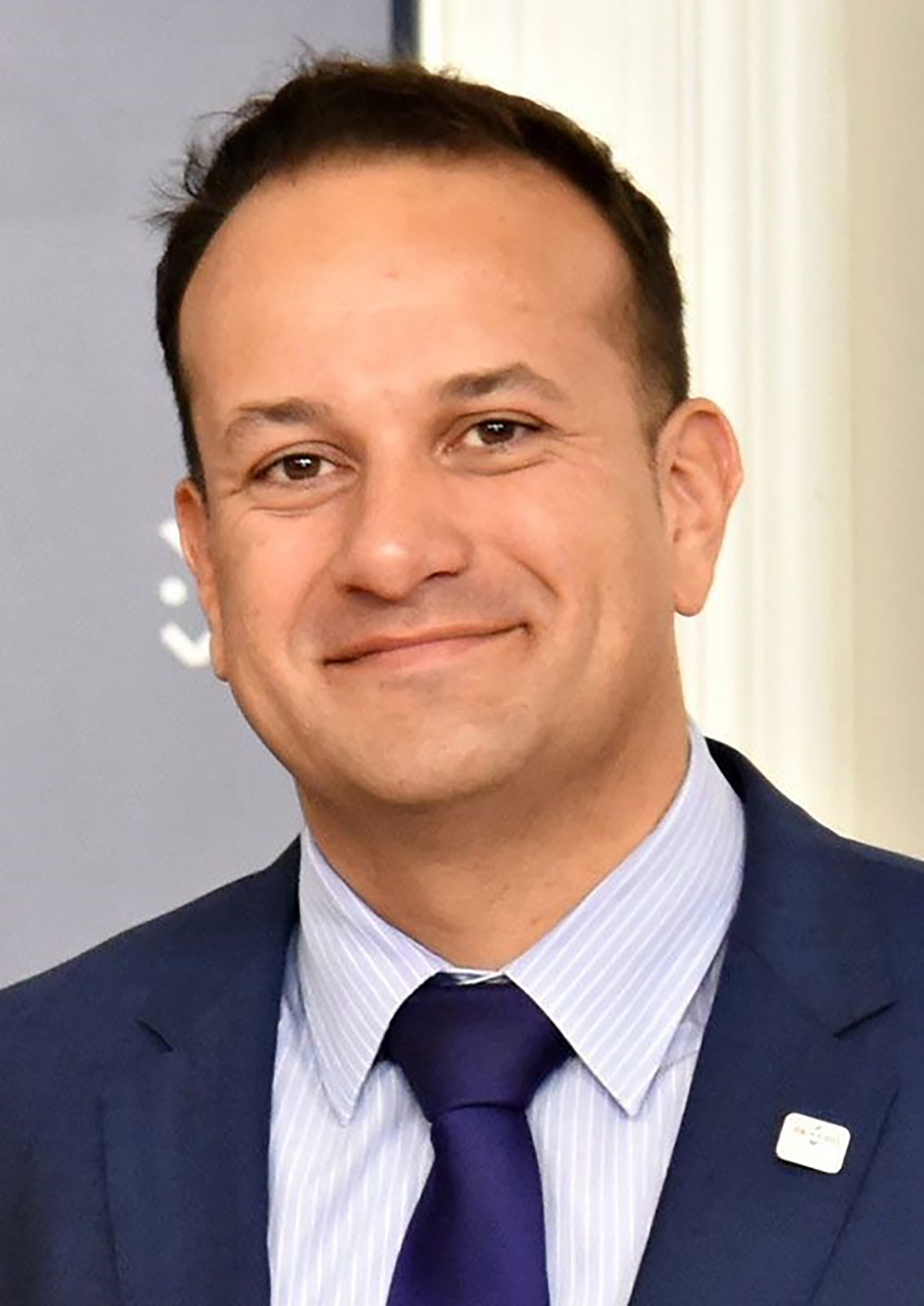
CAMBRIDGE, Mass. — Former Irish Prime Minister Leo Varadkar earlier this month said Europe is now at the forefront of the global LGBTQ and intersex rights movement.
“In many ways, Europe is the light,” he told the Washington Blade on Oct. 20 during an interview that took place near Harvard University. “It’s holding up against anti-LGBTQ policies.”
Varadkar, 46, in 2017 became Ireland’s first gay prime minister.
He stepped down in 2020 after his center-right party, Fine Gael, lost 15 parliament seats in the general election, but he remained in the government. Varadkar, whose father was born in Mumbai, in 2022 once again became prime minister.
Varadkar in 2024 resigned and stepped down as Fine Gael’s leader.
The Harvard Kennedy School’s Carr-Ryan Center for Human Rights on Oct. 16 announced Varadkar’s appointment as a senior fellow for its Global LGBTQI+ Human Rights Program for the 2025-2026 academic year. He — along with former Massachusetts Gov. Deval Patrick and former acting Treasury Secretary David Lebryk — are also Hauser Leaders at the Harvard Kennedy School’s Center for Public Leadership for this year’s fall semester.
Varadkar during his fellowship will focus on LGBTQ and intersex rights within the EU.
He sat down with the Blade on the same day he spoke at Harvard’s Weatherhead Center for International Affairs. Varadkar on Tuesday participated in an event in Brussels that focused on LGBTQ and intersex rights in the EU.
New EU LGBTQ strategy ‘not wonderful, but at least it was done’
The European Commission on Oct. 8 released an LGBTQ and intersex rights strategy that focuses on three specific areas:
- Protecting LGBTIQ+ people (from hate-motivated harassment and violence, from discrimination, from conversion practices)
- Empowering LGBTIQ+ people through (equality bodies, rainbow families, promoting inclusion at workplace)
- Engaging society to advance LGBTIQ+ equality by (calling on all EU countries to adopt national strategies, improving the data collection and analysis, launching an ‘LGBTIQ+ Policy Forum’)
“It’s not wonderful, but at least it was done,” said Varadkar. “You won’t see that done in China, Russia, or even the United States, unfortunately.”
“Europe needs to hold the line, but also we want to focus on places where there is backsliding, like Bulgaria, like Slovakia,” he added, while also referring to the Czech Republic and Hungary.
Varadkar is among those who participated in this year’s Budapest Pride, even though Hungarian Prime Minister Viktor Orbán’s government banned public LGBTQ events.
“It wasn’t just a regular Pride protest, and in Eastern Europe Pride is still a protest, very much so … they’re met by football hooligans, and police who aren’t necessarily there to support there to protect them,” Varadkar told the Blade. “This time, everyone joined in: students, unions, families, even more moderate political forces that might not always want to be associated with the LGBT cause, but it became about freedom of expression and became about free speech, and that’s why there was such a big turnout.”
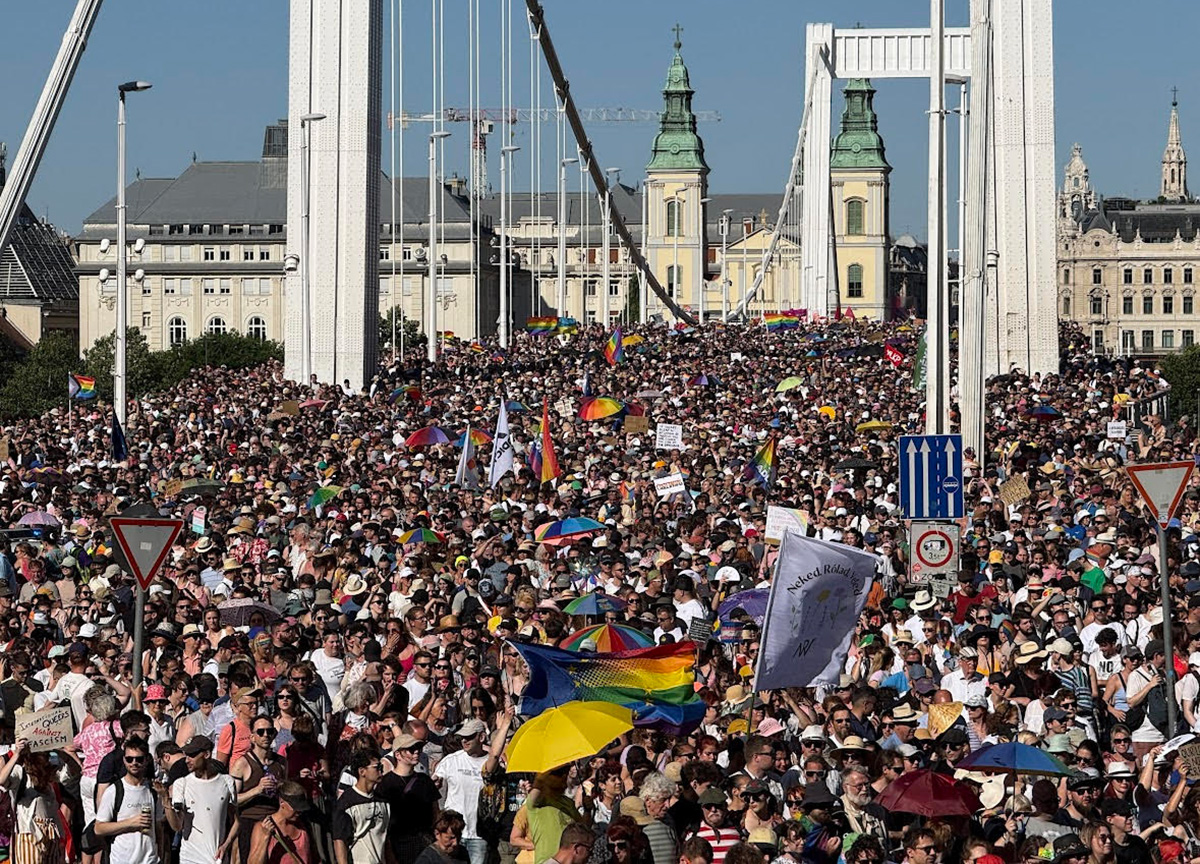
Varadkar since he left office has also traveled to Bulgaria to support the country’s LGBTQ activists. Varadkar also spoke to the Blade about Russia and the Kremlin’s efforts to “influence and destabilize European societies.”
Russia in 2022 launched its war against Ukraine.
“One of the ways they do that is through election interference and misinformation online, and they’ve identified this as an issue that can divide European societies,” said Varadkar, specifically referring to the Russian government’s opposition to LGBTQ rights and its overall human rights record. “[Russian President Vladimir] Putin has very much embraced the idea of traditional values and Russian Orthodox Christianity, and he’s using that as a wedge issue in Central and Eastern Europe.”
“So as ever our fight is part of a bigger fight that’s linked to things like democracy, human rights, academic freedom, press freedom,” added Varadkar. “We’re on the front line in the same battle, in my view.”
He also said the EU needs to be pragmatic in how it responds to Orbán and other anti-LGBTQ leaders.
“[The EU] is in a bit of a dilemma as to how it acts, how it does withdraw funding sometimes from countries if they’re in breach of the standards around the rule of law,” said Varadkar.
The European Commission in 2021 threatened to withhold funding to local and regional governments in Poland that declared themselves “LGBT-free zones.” The European Commission in 2022 sued Hungary over a law that a press release notes “singles out and targets content that ‘promotes or portrays’ what it refers to as ‘divergence from self-identity corresponding to sex at birth, sex change or homosexuality’ for individuals under 18.”
“Some of the more nationalist and populist leaders in Central and Eastern Europe; there’s nothing they want more than a fight with Brussels, these Western European elites … trying to impose their ideology on our country,” Varadkar told the Blade. “So that’s why I think the European Union has to be smart as to how it acts.”
European Commission President Ursula von der Leyen is among those who condemned the Budapest Pride ban. Varadkar told the Blade he “was disappointed there wasn’t more action” from Brussels “in relation to why Budapest Pride was being banned.”
Varadkar praises Sarah McBride
Ireland is among the countries that have issued travel advisories for transgender and nonbinary people who are planning to visit the U.S. since the Trump-Vance administration took office.
President Donald Trump shortly after his inauguration issued a sweeping executive order — Defending Women from Gender Ideology Extremism and Restoring Biological Truth to the Federal Government — that, among other things, bans the State Department from issuing passports with “X” gender markers. Trump in his inaugural speech also said the federal government will only recognize two genders: male and female.
Trump in February issued another executive order that bans trans women and girls from female sports teams. U.S. Citizenship and Immigration Services in August announced it will ensure “male aliens seeking immigration benefits aren’t coming to the U.S. to participate in women’s sports.”
The promotion of LGBTQ and intersex rights abroad was a cornerstone of the Biden-Harris administration’s overall foreign policy.
Secretary of State Marco Rubio on Jan. 24 directed State Department personnel to stop nearly all U.S. foreign aid spending for 90 days in response to an executive order that Trump signed after his inauguration. Rubio later issued a waiver that allowed PEPFAR and other “life-saving humanitarian assistance” programs to continue operating after bowing to pressure, but the Blade has reported PEPFAR-funded programs in Kenya and other African countries have been forced to suspend services and even shut down because of gaps in U.S. funding.
Rubio in March announced 83 percent of U.S. Agency for International Development contacts had been cancelled, and the State Department would administer the remaining programs. USAID officially shut down on July 1.
The global LGBTQ and intersex rights movement has lost more than an estimated $50 million in funding since the Trump-Vance administration took office.
“It has an impact, particularly on organizations in the Global South and in Central and Eastern Europe,” said Varadkar.

Varadkar told the Blade he is working with the Global Development Project and other philanthropic organizations to “fill some of the gap” in funding.
He said the current situation “demonstrates why we should never be too dependent on any government or corporations.” Varadkar also spoke more broadly about the Trump-Vance administration and its policies.
“I’m a guest in this country. I’m not here to tell you what to do. The American people decide who the president is. I don’t, but I am genuinely disappointed to see the backsliding on human rights and academic freedom and free speech here in America,” said Varadkar.
“What do I associate America with? I associate it with being one of the homes of democracy and helping to spread it around the world. I associate it with free speech, sometimes even saying any crazy thing you want. And I associate it with as being the birthplace of the LGBT liberation movement. I think of Stonewall. I think of the Castro,” he added. “It all started here, long before anyone in Ireland could ever imagine homosexual acts being decriminalized, let alone a gay person being the head of government.”
“To me this is where it all started,” said Varadkar. “It’s particularly worrying that things appear to be going in the wrong direction here, and that has impacts in the rest of the world too, that Americans might be very aware of.”
Varadkar also said he admires U.S. Rep. Sarah McBride (D-Del.), who in 2024 became the first openly trans person elected to Congress.
“She’s there for everyone in Delaware, and yes, she is trans too,” Varadkar told the Blade. “She’s willing to be a leader, but I think as LGBT leaders, we should make sure that our causes are part of the wider welfare and society and not separate.”
-

 State Department4 days ago
State Department4 days agoFOIA lawsuit filed against State Department for PEPFAR records
-

 Opinions5 days ago
Opinions5 days agoTrans sports bans rooted in eugenics
-

 India4 days ago
India4 days agoTrans students not included in new India University Grants Commission equity rules
-

 New York4 days ago
New York4 days agoPride flag raised at Stonewall after National Park Service took it down



















